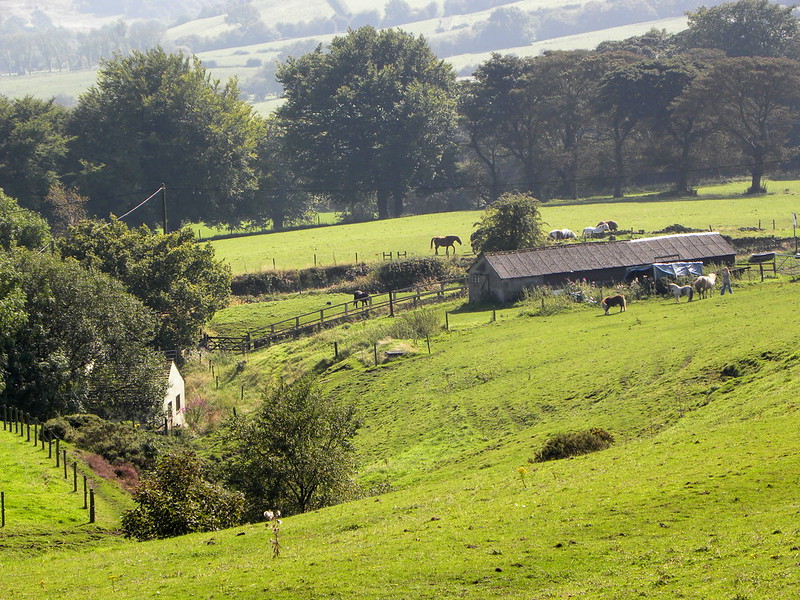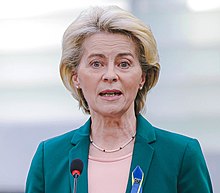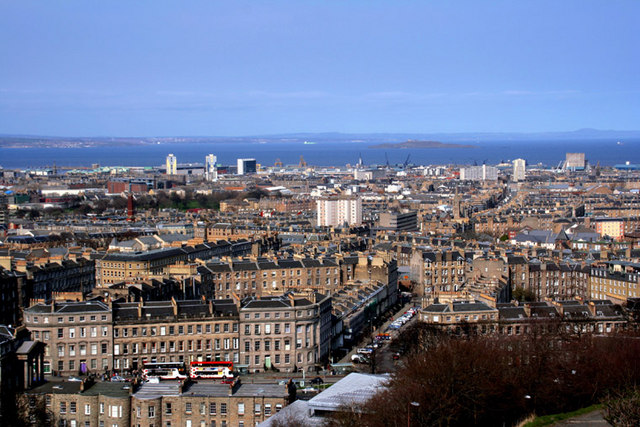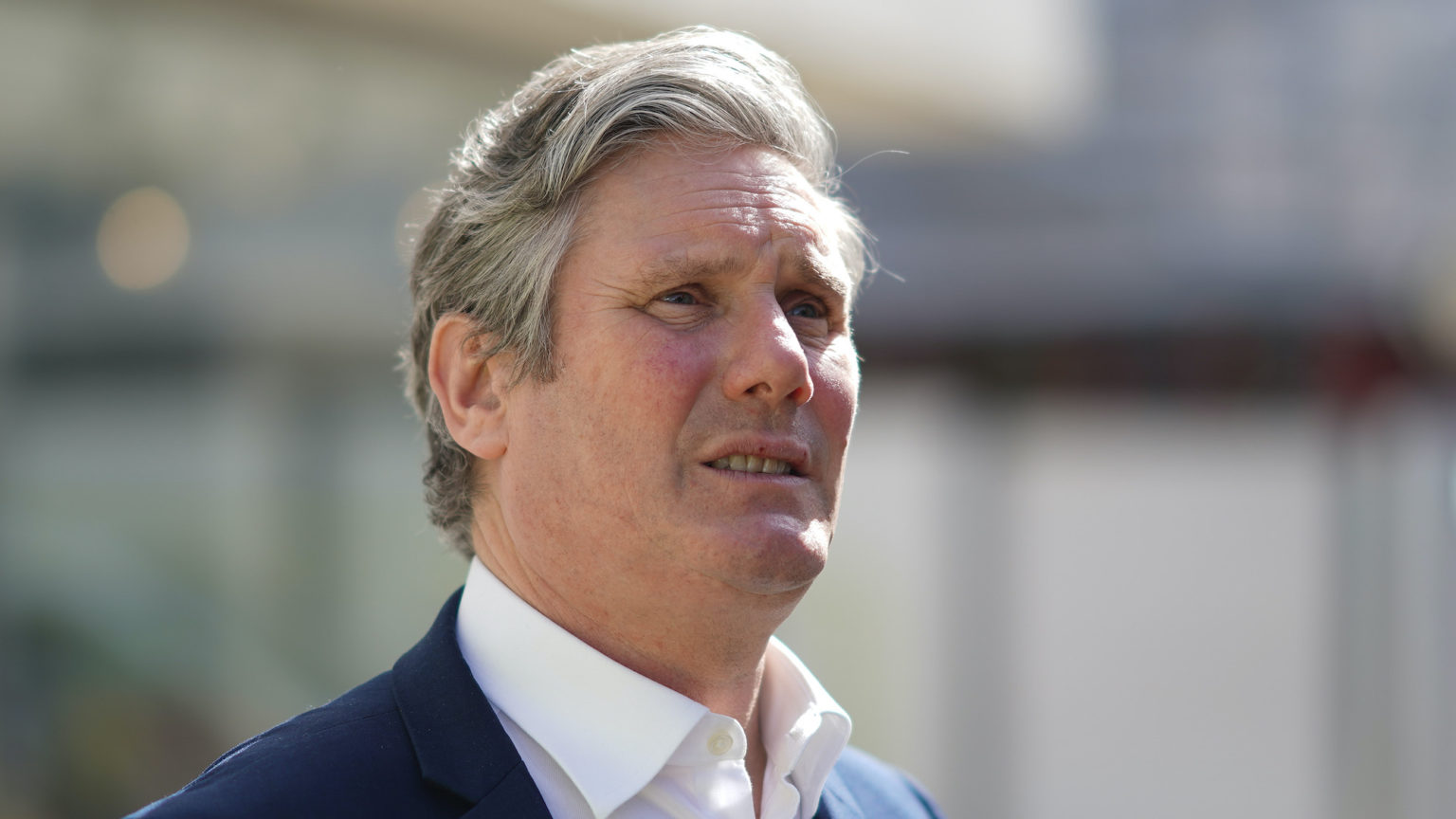1. What a Labour Government means for International Trade
In the ever-changing landscape of global politics, the impact of governmental shifts on international trade cannot be overstated. This article aims to explore what a Labour government could mean for the United Kingdom’s international trade dynamics.
The Labour Party, with its rich history and distinct political stance, has often championed policies that significantly influence the UK’s trade relations. As we delve into this topic, we will examine the party’s historical approach to international trade, their current policy stance, and potential future directions under their governance.
Understanding the implications of a Labour government on UK international trade is crucial not just for businesses and economists, but for every UK citizen. The policies enacted in this sphere have far-reaching effects on the economy, job market, consumer prices, and even our day-to-day lives.
Different Approach
The Conservative and Labour parties in the UK have distinct approaches to international trade, reflecting their unique political ideologies and historical stances.
Conservative Approach:
The Conservative party has been focused on facilitating trade and making it more efficient. They have been successful in achieving 68 trade deals in the wake of Brexit. The key issues in their portfolio are about making trade fairer, greener, and more respectful of workers rights.
Labour Approach:
The Labour party, on the other hand, has a different perspective. They focus on protecting important supply chains and hint at onshoring critical industries. This approach is often referred to as ‘securonomics’, a kind of Labour answer to Bidenomics. They have also shown opposition to a future deal with the US, which was a major point in their campaign.
Impact on business
The impact of a Labour government on businesses in the UK can be quite significant, particularly for small businesses.
Labour’s Approach:
The Labour party’s 2024 manifesto is considered the most business-friendly and business-aware manifesto that has been produced in a long time by any of the parties. They understand that there is no contradiction in being both pro-business and pro-worker. They recognize that business isn’t just big business, it includes small businesses and the self-employed too.
Here are some key points from their manifesto that could impact businesses:
- Replace the Unfair System of Business Rates: The Labour party plans to modernize the tax system to reflect the realities of the high street vs online shopping. They aim to ensure that the tax burden is fairly distributed and doesn’t disproportionately impact small businesses.
- Improve Access to Capital: The manifesto implicitly addresses the barriers faced by women and minorities in obtaining finance¹. By addressing these barriers, they aim to stimulate economic prosperity.
- Grow the Co-op Economy: The Labour party sees potential in the co-op sector, particularly for gig work and small businesses.
- Business Partnership for Growth: The Labour government plans to provide businesses with as much notice as possible prior to major decisions being implemented. This will help businesses be ready when new requirements or changes are introduced.
In conclusion, the Labour government’s approach to business is focused on creating a balanced and prosperous economy that benefits both businesses and workers. However, the actual impact will depend on how these policies are implemented and how businesses adapt to these changes.
Challenges
- Renationalisation: Labour’s previous commitment to renationalising certain industries could lead to uncertainty for businesses in those sectors. For example, the water industry, which is in dire need of £270 billion investment by 2050, could be affected.
- Scrutiny of Mergers and Acquisitions: The proposed £3.6 billion takeover of Royal Mail by Czech billionaire Daniel Kretinsky will be scrutinised under Labour. This could lead to uncertainty for businesses involved in mergers and acquisitions.
- Industrial Strategy: The future of certain industries, such as Tata Steel’s Port Talbot plant, could be uncertain under a Labour government. The new government would need to craft an industrial strategy to support the sector.
- Trade Relations: Labour aims to stabilise and improve trading relations with the EU and navigate the complex dynamics with China. The party will seek to negotiate a better partnership with Brussels without rejoining the single market or customs union. This could lead to uncertainty for businesses that trade internationally.
- Business Rates Reform: Reforming the commercial property tax is high on Labour’s agenda. While Labour promises to level the playing field for high street retailers, specifics on how this will be achieved remain unclear. Potential reforms could include taxing out-of-town warehouses, though these measures might not fully alleviate the burden on traditional retailers.
- Employment Law Reforms: Employment law is set to change under a new Labour government. Wide-ranging reforms are expected with implications for operations, workforces and strategic business planning.
These challenges highlight the need for businesses to stay informed and adaptable in the face of potential policy changes.
2. EFRA Committee to scrutinise the UK’s Free Trade Agreements

English Farm Country by Karen on Flickr CC BY-NC-ND 2.0
The United Kingdom has been making significant strides in establishing its position post-Brexit. This article delves into the critical role of the Environment, Food and Rural Affairs (EFRA) Committee in this context. The EFRA Committee, a cornerstone of the UK’s parliamentary scrutiny, has embarked on a mission to scrutinise the UK’s Free Trade Agreements (FTAs), providing a comprehensive review of ongoing FTA negotiations.
Moreover, the recent accession of the UK to the Comprehensive and Progressive Agreement for Trans-Pacific Partnership (CPTPP) marks a pivotal moment in its trade history. This development not only expands the UK’s trade horizons but also brings forth a multitude of opportunities and challenges.
Join us as we explore the intricacies of these developments, their potential impact on the UK’s trade policies, and the future of global trade relations.
Responsibilities
– The EFRA Committee is appointed by the House of Commons to examine the expenditure, administration, and policy of the Department for Environment, Food and Rural Affairs (Defra) and its associated public bodies.
– It is one of the 19 Select Committees related to Government Departments, established by the House of Commons under Standing Order No. 152.
– The Committee chooses its own subjects of inquiry on environmental and agricultural subjects.
– Depending on the subject, external deadlines, and the amount of oral evidence the Committee decides to take, an inquiry may last for several months and give rise to a report to the House.
– When the Committee has chosen an inquiry, it normally issues a press notice outlining the main themes of inquiry and inviting interested parties to submit written evidence.
– The House has given the Committee the power to send for “persons, papers and records”. It therefore has powers to insist upon the attendance of witnesses and the production of papers and other material.
– The EFRA Committee is responsible for everything from animal welfare policy to water companies and scrutinising trade agreements.
Recent FTA scrutiny
The Environment, Food and Rural Affairs Committee (EFRA) has been actively scrutinising the UK’s Free Trade Agreements (FTAs), ongoing FTA negotiations, and the recent accession to the Comprehensive and Progressive Agreement for Trans-Pacific Partnership (CPTPP). Here are some key points from their scrutiny:
– The EFRA Committee held the second session of its ‘UK trade policy: food and agriculture’ inquiry on 6 February 2024. The session saw MPs scrutinise the FTAs the UK has signed since leaving the EU
– The Committee members also raised negotiations currently being undertaken, and examined the case of the stalling talks between the UK and Canada.
– The session considered the implications of the UK’s recent accession to the CPTPP for the UK agri-food sector.
– The Committee took evidence from academics and sector experts, who were asked for their reflections on the Government’s approach to the trade agreements it is currently pursuing.
– The session also investigated the ongoing FTA negotiations between the UK and the Gulf Cooperation Council (GCC) and India.
– The EFRA Committee launched its inquiry, ‘UK trade policy: food and agriculture’, to assess the strategic and economic coherence of the government’s approach to international trade.
– The inquiry aimed to weigh the positive and negative impacts of agreements made so far and the opportunities and risks of those to come.
These inquiries by the EFRA Committee play a crucial role in understanding the challenges and opportunities presented by the UK’s trade policies and shaping future policies to address these issues.
3. Serbia’s declining ties with Russia

Nikola Aleksic via Unsplash
In recent years, Serbia has been undergoing a significant shift in its trade relations. Despite its historical ties with Russia, there has been a noticeable decline in trade between the two nations. This shift is seen by some analysts as a sign of Belgrade politically distancing itself from Moscow.
Historical Ties and Recent Changes
Serbia and Russia share a long history of close ties due to their shared Slavic and Orthodox heritage. However, over the last decade, Serbia has been moving away from the EU politically and tightening its relationship with Russia. Despite this, the beginning of 2024 marked a significant decline in trade between Serbia and Russia.
Political Implications
The inclusion of Aleksandar Vulin, a former intelligence chief who has fostered close ties with Russia, into Serbia’s new government suggests a further shift toward Russia. This move has been met with criticism, with the Opposition Movement of Free Citizens party stating that by including Vulin in the new government, “Serbia is no longer nominally on the European path”.
Looking Forward
Despite the political shifts, Serbia continues to seek new markets and diversify its trade partners. As Serbia navigates its path between Russia and the EU, it will be interesting to observe how these dynamics evolve and what impact they will have on Serbia’s economy and international relations.
4. China EV factories go to Morocco to get US subsidies

Louis Hansel via Unsplash
In an unexpected turn of events, Chinese manufacturers have set their sights on Morocco as a strategic location to cash in on US electric vehicle subsidies. This move comes after the United States passed new subsidies designed to boost domestic electric vehicle (EV) production and reduce Beijing’s supply chain dominance.
Strategic Investment in Morocco
Investment in electric vehicle manufacturing is booming in Morocco, a country that neighbors Europe and enjoys a free trade agreement with the United States. In the rolling hills near Tangiers and in industrial parks near the Atlantic Ocean, Chinese manufacturers have announced plans for new factories to make parts for EVs.
These parts may qualify for $7,500 credits to car buyers in the United States. Similar investments have been announced in other countries that share free trade agreements with the United States, including South Korea and Mexico. However, few countries have seen the kind of boom that Morocco has.
The Inflation Reduction Act
At least eight Chinese battery makers have announced new investments in the North African kingdom since President Joe Biden signed the Inflation Reduction Act. This $430 billion U.S. law is designed to fight climate change.
By moving operations to U.S. trading partners like Morocco, Chinese players that have long dominated the battery supply chain are seeking a pathway to cash in on increasing demand from American carmakers like Tesla and General Motors.
The Future of EV Manufacturing
The United States and European Union have both imposed major new tariffs on Chinese vehicle imports since May. The United States also finalized eligibility rules governing the tax credits in May.
To qualify for the subsidies, carmakers cannot source critical minerals or battery parts from manufacturers in which China and other “foreign entities of concern” control more than 25% of the company or its board. Critics say the rules are a giveaway to China and will extend its EV dominance.
The Biden administration says the rules pave the way for billions in investment in EV manufacturing in the United States. In Morocco, a largely agrarian economy where the median income is $2,150 a month, giant industrial parks full of American, European and Chinese component makers have sprung up in the rural outskirts of Tangiers, Kenitra and El Jadida.
5. Labour claims to boost trade with Europe

Ash Seddon via Unsplash
The UK Labour Party has been exploring various strategies to enhance trade relations with Europe. This comes in the wake of Brexit, which has significantly altered the UK’s trade dynamics with its European counterparts.
Revisiting the Brexit Agreement
One of the key strategies that the Labour Party is considering is revisiting the Brexit agreement. This move is seen as a potential way to reassess and optimize the terms of trade between the UK and the EU.
Easing Border Checks
Labour’s electoral manifesto points to easing border checks as a means to tackle the cost of food. This could potentially lead to a smoother flow of goods across borders, thereby boosting trade.
Mutual Recognition of Professional Qualifications
Another proposed change includes the mutual recognition of professional qualifications. This could facilitate the movement of professionals between the UK and the EU, potentially leading to increased economic activity.
New Veterinary Agreement with the EU
The Labour Party is also considering a new veterinary agreement with the EU. This could improve trade, particularly in the agricultural sector.
Free Trade Agreements and Sectoral Deals
The Labour Party has expressed a desire for ‘targeted’ new free trade agreements and stand-alone sectoral deals. These could open up new avenues for trade between the UK and the EU.
Multilateral Cooperation and High Food Standards
The promotion of multilateral cooperation and high food standards is another area of focus for the Labour Party. This could enhance the UK’s trade reputation and potentially lead to increased trade opportunities.
In conclusion, the UK Labour Party is exploring a range of options to boost trade with Europe. While these strategies present potential benefits, their success will depend on careful implementation and ongoing dialogue with European partners.
6. Inflation Reduction Act: a critical look for Europe

Introduction
The Inflation Reduction Act (IRA), signed into law by President Biden on August 16, 2022, marked a significant investment in the American economy, energy security, and climate. This landmark legislation aimed to curb inflation by potentially reducing the federal government budget deficit, lowering prescription drug prices, and investing in domestic energy production while promoting clean energy.
The Inflation Reduction Act: A Brief Overview
The IRA was a result of negotiations on the proposed Build Back Better Act, which was comprehensively reworked after being opposed by Senator Joe Manchin. The law raised $738 billion from tax reform and prescription drug reform to lower prices, and authorized $891 billion in total spending – including $783 billion on energy and climate change. It represented the largest investment into addressing climate change in United States history.
Lessons for Europe
The IRA’s passage has sparked discussions in Europe about how to manage its green transition while strengthening its economic and strategic resilience. The scale and scope of the IRA has concerned U.S. allies, particularly in Europe, who fear it could mark the end of the postwar U.S. commitment to a rules-based international economic order.
Embracing a Range of Decarbonisation Options
One of the key lessons for Europe from the IRA is the need to support multiple technologies to create a range of decarbonisation options. Each region or country will likely require a different mix of technologies, tailored to local circumstances including political landscape, economy, and natural resources.
Tailoring Policy Support
Policy must be tailored to the requirements of specific technologies and designed to help advance them through different stages. This approach can help move technologies through the research and development (R&D), demonstration, and deployment stages to harvest cost reductions from economies of scale.
Addressing Multiple Barriers
The IRA also teaches Europe the importance of addressing multiple barriers, not just cost. These include barriers to building and connecting infrastructure, accessing financing, and speeding up project construction.
Conclusion
The Inflation Reduction Act has provided valuable lessons for Europe as it navigates its own green transition. By embracing a range of decarbonisation options, tailoring policy support, and addressing multiple barriers, Europe can strengthen its economic and strategic resilience while preserving jobs and productivity growth.
7. Wind Turbines in Leith: A Beacon of Renewable Energy

Leith, a district in Edinburgh, Scotland, is becoming a significant player in the renewable energy sector, particularly in wind energy. The area is set to house Scotland’s first wind turbine factory at Leith docks, marking a significant milestone for the renewable energy sector in Scotland.
Vestas: Pioneering Wind Energy in Leith
Vestas, a Danish manufacturer and a world leader in wind turbine production, has initiated the process of securing planning permission for the site at Leith docks. This factory will be the first of its kind in Scotland, producing Vestas’ new design of offshore blade, known as B236. Each blade will be 115 meters long, and a turbine with three such blades is rated at 15 megawatts. This output could power roughly 13,000 homes.
Leith Renewables Hub: A Center for Wind Farm Development
In just over a year’s time, Leith is set to be at the center of operations to build massive wind turbines in the North Sea. Construction is well underway on a huge renewables hub, covering 175 acres of land at Leith docks. The hub, the largest in Scotland, is expected to support up to 1,000 high-quality, long-term direct jobs and another 2,000 indirect jobs.
The Future of Wind Energy in Leith
The plan for Leith would see it producing Vestas’ new design of offshore blade. The process of manufacturing blades is highly skilled, requiring several hundred workers to produce them at a viable scale. The next phase of Scottish offshore wind development is on condition that a higher proportion of the supply chain is in Scotland.
Leith’s strategic location and the establishment of the renewables hub make it an ideal location for wind energy development. With the ongoing developments, Leith is poised to become a significant contributor to the UK’s green industrial revolution.
8. LG & Hyundai open Indonesia’s first EV battery factory

Fikri Rasyid via Unsplash
In a significant stride towards an electric future, South Korean automotive manufacturer Hyundai Motor Group and battery manufacturer LG Energy Solution have inaugurated a new $1.1 billion electric vehicle (EV) battery cell manufacturing facility in Indonesia. This marks the birth of the country’s first EV battery manufacturing plant.
A Joint Venture Powering Affordable EVs
The new facility, developed by HLI Green Power, a joint venture between Hyundai and LG, is located in Karawang, West Java. Announced in 2021, the plant spans 320,000 square meters at the Karawang New Industry City. The plant is set to produce 10 GWh of battery cells annually, enough to power over 150,000 EVs. The cells produced at the plant will be used in Hyundai and Kia EV models.
Building a Comprehensive Local EV Ecosystem
HLI Green Power aims to create a comprehensive local EV ecosystem that includes sourcing raw materials, producing batteries and vehicles, supporting charging networks, and recycling batteries. Indonesia, renowned for its vast nickel reserves, is an ideal location for the production of EVs.
A Major Milestone for Indonesia and Hyundai
The inauguration of the plant is a major milestone for both Indonesia and Hyundai. The plant has been producing battery cells since Q2 2024, after starting trial production in the second half of 2023. The new Kona Electric, the first EV powered by the new cells, will begin mass production in the country.
Fostering the Kona Electric as Indonesia’s Representative Electric Vehicle
With long-range and fast charging capabilities at an affordable price, Hyundai plans to foster the Kona Electric as Indonesia’s representative electric vehicle. The new Kona is the second EV produced at Hyundai’s Indonesian plant, following the IONIQ 5.
Indonesia’s Potential for EVs
Indonesia holds massive potential for EVs. It has the world’s largest nickel reserve and is the world’s fourth most populated country. In addition, Indonesia aims to build 600,000 EVs annually by 2026 as part of its plan to achieve carbon neutrality. Electric cars currently account for about 2% of Indonesia’s auto market but are expected to reach a double-digit share by 2030.







